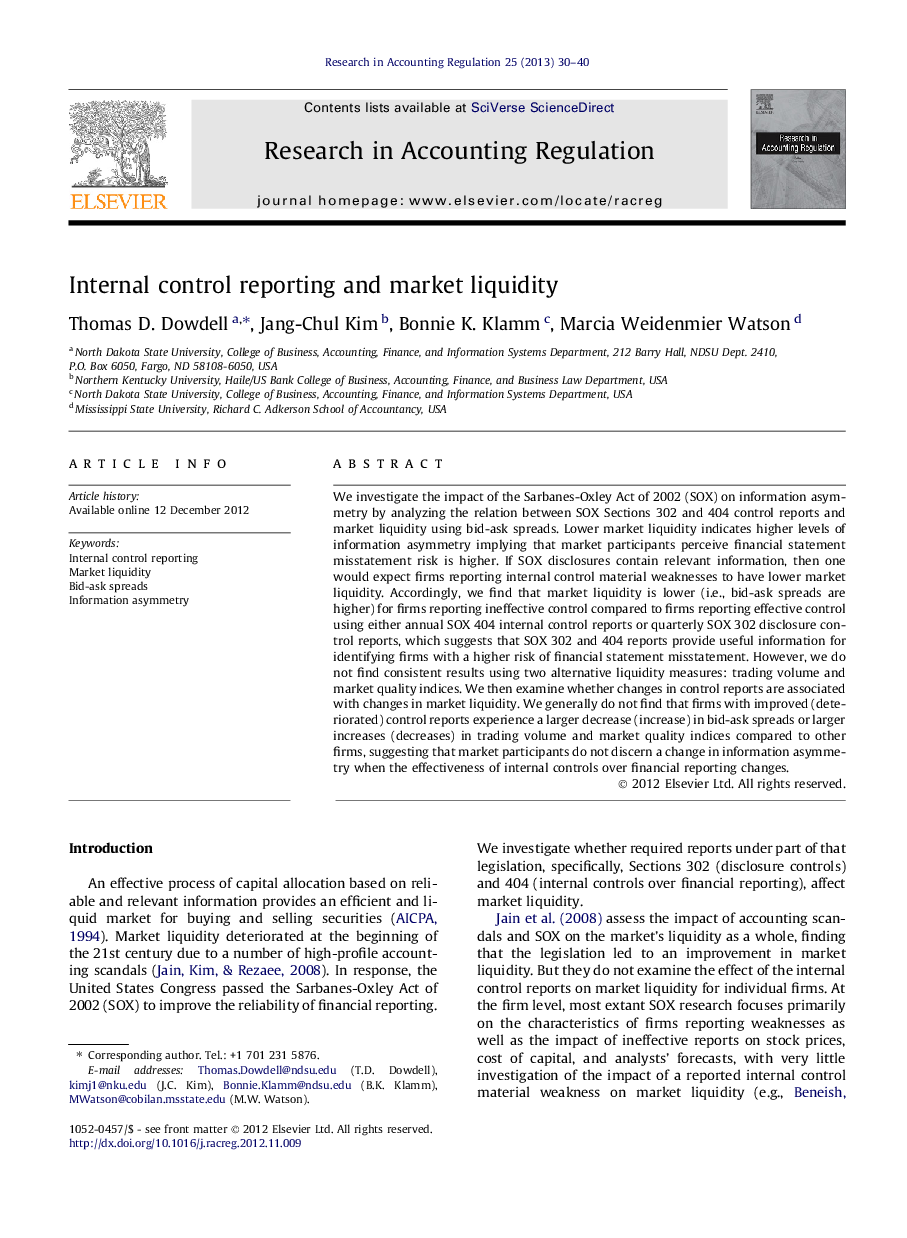| Article ID | Journal | Published Year | Pages | File Type |
|---|---|---|---|---|
| 1006630 | Research in Accounting Regulation | 2013 | 11 Pages |
We investigate the impact of the Sarbanes-Oxley Act of 2002 (SOX) on information asymmetry by analyzing the relation between SOX Sections 302 and 404 control reports and market liquidity using bid-ask spreads. Lower market liquidity indicates higher levels of information asymmetry implying that market participants perceive financial statement misstatement risk is higher. If SOX disclosures contain relevant information, then one would expect firms reporting internal control material weaknesses to have lower market liquidity. Accordingly, we find that market liquidity is lower (i.e., bid-ask spreads are higher) for firms reporting ineffective control compared to firms reporting effective control using either annual SOX 404 internal control reports or quarterly SOX 302 disclosure control reports, which suggests that SOX 302 and 404 reports provide useful information for identifying firms with a higher risk of financial statement misstatement. However, we do not find consistent results using two alternative liquidity measures: trading volume and market quality indices. We then examine whether changes in control reports are associated with changes in market liquidity. We generally do not find that firms with improved (deteriorated) control reports experience a larger decrease (increase) in bid-ask spreads or larger increases (decreases) in trading volume and market quality indices compared to other firms, suggesting that market participants do not discern a change in information asymmetry when the effectiveness of internal controls over financial reporting changes.
